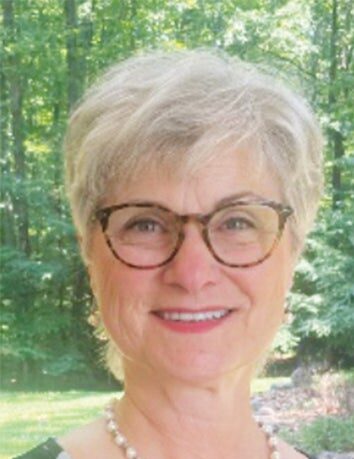Older adults list legislative priorities
Published 10:02 am Tuesday, October 22, 2024
|
Getting your Trinity Audio player ready...
|
Elderly residents of North Carolina want to stay in their own homes as long as possible.
If they have to spend time in a nursing home or rehabilitation center, they want to know that it is fully staffed.
Those are two of the recommendations that members of the N.C. Senior Tar Heel Legislature are sending to legislators.
Older adults contribute untold millions to the state’s economy through volunteerism and activities that support the prosperity of their adult children and grandchildren, said Allison Brown, Davie’s NCSTHL delegate.
“The NCSTHL proposes to honor the lifelong contributions of the state’s older adults, to preserve their dignity, to ensure their continued productivity and well-being, and to safeguard the ability to age in places of their choice,” she said. “Enacting these recommendations serves to avoid or postpone the far more costly option of long-term care placement and to protect our most frail and vulnerable adults. State appropriations to support more fiscally-responsible in-home services are approximately 0.17% of the state budget, and the older adult segment of 24% of the state’s population deserves greater support from the state.”
After months of study and deliberation, NCSTHL members determined that these legislative priorities are among the most pressing issues facing our older adult population across the state, she said.
Speaker Woody Brinson said: “Through enactment of legislation to address these needs, the North Carolina General Assembly would have the greatest positive impact on the quality of life and health outcomes for all our seniors.”
The priority recommendations:
• Older Adult Housing. Alleviate the severe housing shortage by supporting the availability of safe, affordable, and accessible housing for older adults and help older adults age in place in their homes.
• Healthcare Workforce Crisis. Alleviate the critical shortage of healthcare workers, especially workers providing personal physical care, by addressing the workforce crisis through expanded financial incentives and support for individuals pursuing those careers.
• Nursing Home Staffing Standards. Strengthen nursing home staffing standards by adopting a state required minimum at least equal to the current federal regulatory standard of 3.48 hours per resident per day.
• Long Term Care Ombudsman Program. Strengthen the state’s ombudsman program by addressing staffing concerns associated with paid ombudsman positions and defining roles and responsibilities of the Community Advisory Committee volunteers.
• New Community-Based Services Program. Establish a funding stream of at least $2 million to be administered by the Division of Aging, outside of the constraints of the Home and Community Care Block Grant Program, that supports service allowing recipients 60+ to live in their homes safely as long as possible.
• Senior Centers. Develop a plan to implement and fund a strong network of robust senior centers for all counties, to ensure socialization and well-being, to provide information and education, to perform triage in providing assistance, and to prevent isolation that impacts health and overall quality of life.
• Home & Community Care Block Grant. Create policies that rebalance the recurring system of in-home services versus institutional care, including budget appropriations to ensure continuity of home- and community-based annual services and supports to address the rising number of older adults.
• Adult Protective Services. Pass statutory changes recommended by the Adult Protective Services Improvement Design Team and provide recurring state funding to support needed capacity to protect all vulnerable older and disabled adults across the state.
For more information, contact Brown at katbrown1029@gmail.com or 336-940-8185; or visit https://www.ncdhhs.gov/divisions/aging-and-adult-services/daas-councils-and-committees/nc-senior-tar-heel-legislature.
The N.C. Senior Tar Heel Legislature was created as a nonpartisan body by the N.C. General Assembly in July of 1993. Its purpose is to identify the most pressing issues facing older adults across the state and propose legislation that will improve their quality of life. The NCSTHL is comprised of delegates and alternates representing each of North Carolina’s 100 counties, supported by the Area Agencies on Aging serving the state’s 16 service areas.






